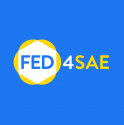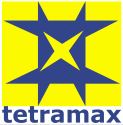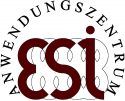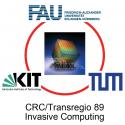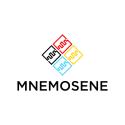3.7 Design Automation of Cyber-Physical Systems
Date: Tuesday 26 March 2019
Time: 14:30 - 16:00
Location / Room: Room 7
Chair:
Lei Bu, Nanjing University, CN
Co-Chair:
Stefano Centomo, University of Verona, IT
The session addresses design techniques for modern cyber-physical systems, e.g., design of the computation/communication platform according to system dynamics, design of variable-delay controllers and, last but not least, assume-guarantee contract optimization.
| Time | Label | Presentation Title Authors |
|---|---|---|
| 14:30 | 3.7.1 | EXPLOITING SYSTEM DYNAMICS FOR RESOURCE-EFFICIENT AUTOMOTIVE CPS DESIGN Speaker: Wanli Chang, University of York, GB Authors: Leslie Maldonado1, Wanli Chang2, Debayan Roy3, Anuradha Annaswamy4, Dip Goswami5 and Samarjit Chakraborty6 1Massachusetts Institute of Technology, US; 2University of York, GB; 3Technical University of Munich, DE; 4MIT, US; 5Eindhoven University of Technology, NL; 6TU Munich, DE Abstract Automotive embedded systems are safety-critical, while being highly cost-sensitive at the same time. The former requires resource dimensioning that accounts for the worst case, even if such a case occurs infrequently, while this is in conflict with the latter requirement. In order to manage both of these aspects at the same time, one research direction being explored is to dynamically assign a mixture of resources based on needs and priorities of different tasks. Along this direction, in this paper we show that by properly modeling the physical dynamics of the systems that an automotive control software interacts with, it is possible to better save resources while still guaranteeing safety properties. Towards this, we focus on a distributed controller implementation that uses an automotive FlexRay bus. Our approach combines techniques from timing/schedulability analysis and control theory and shows the significance of synergistically combining the cyber component and physical processes in the cyber-physical systems (CPS) design paradigm. Download Paper (PDF; Only available from the DATE venue WiFi) |
| 15:00 | 3.7.2 | IMPLEMENTATION-AWARE DESIGN OF IMAGE-BASED CONTROL WITH ON-LINE MEASURABLE VARIABLE-DELAY Speaker: Robinson Medina, Eindhoven University of Technology & TNO Powertrains, NL Authors: Róbinson Alberto Medina Sánchez, Sander Stuijk, Dip Goswami and Twan Basten, Eindhoven University of Technology, NL Abstract Image-based control uses image-processing algorithms to acquire sensing information. The sensing delay associated with the image-processing algorithm is typically platform-dependent and time-varying. Modern embedded platforms allow to characterize the sensing delay at design-time obtaining a delay histogram, and at run-time measuring its precise value. We exploit this knowledge to design variable-delay controllers. This design also takes into account the resource configuration of the image processing algorithm: sequential (with one processing resource) or pipelined (with multiprocessing capabilities). Since the control performance strongly depends on the model quality, we present a simulation benchmark that uses the model uncertainty and the delay histogram to obtain bounds on control performance. Our benchmark is used to select a variable-delay controller and a resource configuration that outperform a constant worst-case delay controller. Download Paper (PDF; Only available from the DATE venue WiFi) |
| 15:30 | 3.7.3 | OPTIMIZING ASSUME-GUARANTEE CONTRACTS FOR THE DESIGN OF CYBER-PHYSICAL SYSTEMS Speaker: Chanwook Oh, University of Southern California, US Authors: Chanwook Oh1, Eunsuk Kang2, Shinichi Shiraishi2 and Pierluigi Nuzzo1 1University of Southern California, US; 2Toyota InfoTechnology Center, US Abstract Assume-guarantee (A/G) contracts are mathematical models enabling modular and hierarchical design and verification of complex systems by rigorous decomposition of system-level specifications into component-level specifications. Existing A/G contract frameworks, however, are not designed to effectively capture the behaviors of cyber-physical systems where multiple agents aim to maximize one or more objectives, and may interact with each other and the environment in a cooperative or non-cooperative way toward achieving their goals. This paper proposes an extension of the A/G contract framework, namely optimizing A/G contracts, that can be used to specify and reason about properties of component interactions that involve optimizing objectives. The proposed framework includes methods for constructing new contracts via conjunction and composition, along with algorithms to verify system properties via contract refinement. We illustrate its effectiveness on a set of case studies from connected and autonomous vehicles. Download Paper (PDF; Only available from the DATE venue WiFi) |
| 16:00 | End of session Coffee Break in Exhibition Area
On all conference days (Tuesday to Thursday), coffee and tea will be served during the coffee breaks at the below-mentioned times in the exhibition area. Lunch Breaks (Lunch Area)On all conference days (Tuesday to Thursday), a seated lunch (lunch buffet) will be offered in the Lunch Area to fully registered conference delegates only. There will be badge control at the entrance to the lunch break area. Tuesday, March 26, 2019
Wednesday, March 27, 2019
Thursday, March 28, 2019
|



